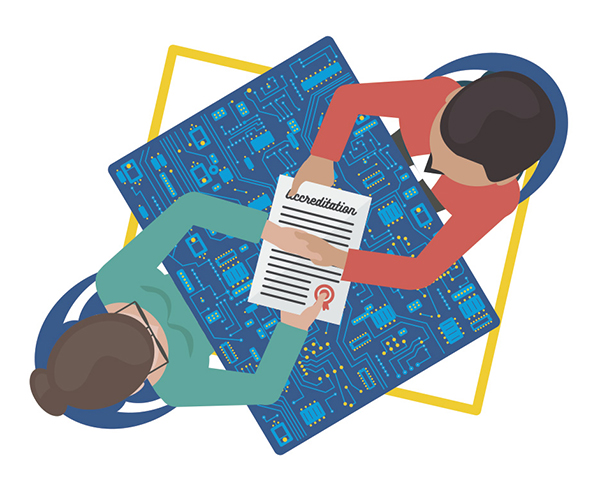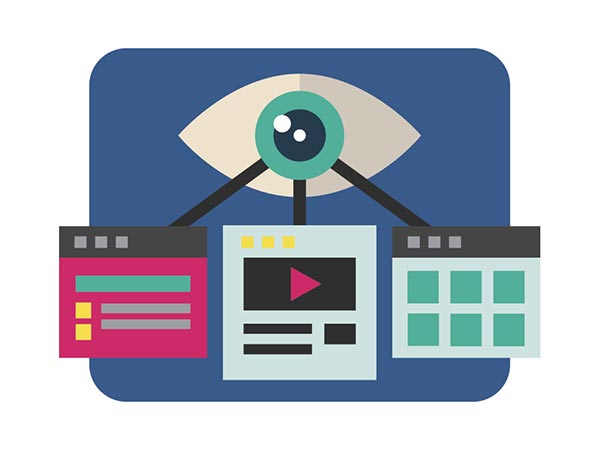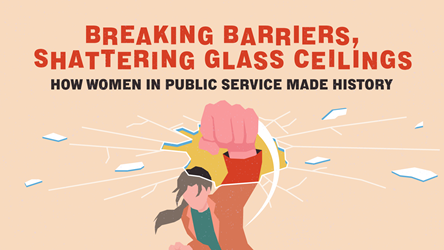A Win-Win Situation With Accreditation@IDA
For young Singapore-based tech firms, greater confidence to pitch for government projects. For public agencies, access to more innovative tech solutions and simpler ways to procure them. Here’s a look at how Accreditation@IDA is helping both tech providers and solution seekers.

As a young technopreneur, Mr Ted Chen used to have trouble being taken seriously.
“When you have a start-up and someone [as young as] me talking about sustainable energy management and climate change, people are like, ‘Who’s this kid?’” says Mr Chen, 25.
But now that the company he cofounded has been accredited by the Infocomm Development Authority of Singapore’s (IDA), things are different.
“I can get into more meetings and get more follow-ups [with public agency clients] now,” says Mr Chen. His firm, EverComm, uses data analytics and sensor networks to pinpoint energy use and wastage, and provides energy- and cost-saving solutions.
Apart from helping him to strengthen his product and business operations, Accreditation@IDA has also raised Mr Chen and EverComm’s profile. This enabled them to quickly secure their early stage funding, as well as enter markets and win contracts in Singapore, Thailand and Taiwan.
Maritime and security data analytics start-up Sense Infosys has also undergone the rigorous evaluations of the Accreditation@IDA programme, which was launched in July 2014.
The company’s founder, Mr Stephen Chow, 47, notes that the world of tech companies is littered with failures and premature windings-up. “The risk of failure is high; each mistake made costs time and money,” he says.
For Sense Infosys, getting accredited has been an immense boost as the company negotiates its stages of growth, says Mr Chow.
He adds: “The thoroughness and robustness of the IDA’s approach allows us to have a focused strategy as well as gain visibility and establish a track record. The due diligence the IDA does in the accreditation process is similar to that required by a potential investor.”
During the accreditation process, the IDA team are at the companies to identify the bugs in their software, review business operations, help identify their product propositions and market pitching, and plan for company growth.

Post-accreditation, Sense Infosys announced in May that it had secured additional funding of $2 million, which will enable it to ramp up technological upgrades, accelerate research and development, and expand sales and support operations.
Boosting confidence and value
Without the help and assurance that Accreditation@IDA offers, a small, unknown firm may be too much of a risk for potential government or corporate customers to consider, let alone award contracts to.
Current government policy allows for limited-tender procurement for accredited companies, and also mandates that public officers should consider IDA-accredited companies first for relevant government projects. Accreditation@IDA is also able to facilitate information flows between buyers and sellers, such that an accredited company could be linked up to a few public agencies at once, for example, through events and workshops.
Procuring agencies are not only assured of a simpler procurement process, but also of the quality of the companies that have met the Accreditation@IDA standards.
Accreditation is not just about “going through a checklist”, says Accreditation@ IDA Director Edwin Low. “We really want to generate value for both sides — for the start-up and for the would-be buyer.”

IDA-ACCREDITED COMPANY KAI SQUARE
will be doing a live demo of their video analytics software at the PS21 ExCEL Convention, November 10-11, by tracking the attendance and profiles of visitors. The company has collaborated with the Housing & Development Board and the Ministry of Manpower, for instance, to manage frontline counter-based customer service. Drawing data from surveillance cameras, the software provides business intelligence analytics from human traffic flows, audience profiling and face indexing; as well as security intelligence analytics such as detecting intruders.
Accreditation@IDA supports the Smart Nation initiative, which is coordinated out of the Prime Minister’s Office. It also seeks to develop related industries, and help accredited companies succeed, Mr Low says. “We really want to help start-ups be able to scale up their operations, make on-the-fly refinements and grow.”
He estimates that Accreditation@IDA has broadly screened more than 2,000 companies, and met up with more than 200 to shortlist about 70 companies for further engagement.
He likens the accreditation team at the IDA as a collective of “trusted specialists”, who can help review even the most sensitive information that a company may hesitate to share with a private certification body.
“Everybody has bugs, even the best companies. Having to answer our questions is like making many little discoveries about their own business. We help them to pitch their business and map their growth the right way.”
Once “the potential potholes are filled”, says Mr Low, an accredited company is primed to capitalise on the IDA’s endorsement and win business deals. At the one-year mark of the programme, the first eight accredited companies had generated projects in the pipeline and business deals worth about $20 million. Now, that figure is close to $40 million.
EverComm’s Mr Chen says the accreditation process was like a “boot camp” for his company, which has already more than US$1 million ($1.35 million) in revenue and opened offices in Singapore and Taiwan. It has plans to enter markets in Malaysia and China this year.
“It was a learning process over three to four months,” he says. “We had a lot to fix, but it was definitely necessary. It was an eye-opener for us, because we had to clean up three years’ worth of financials. And when we gave our code to the IDA, they came back with more than 200 vulnerabilities.”
Another advantage
Both Mr Chen and Sense Infosys’ Mr Chow agree that gaining accreditation — which is good for 18 months before a follow-up review is needed — has allowed them to focus more on their products and clients, and less on operations.
With a higher profile and access to more decision-makers in the government and big enterprises, Evercomm’s Mr Chen wants to get people to “think a little bit more, take a bit more effort” to save energy and find energy optimisation solutions.
Reflecting on how far Accreditation@IDA has taken him and his company, he describes the journey as “amazing”.
“I really couldn’t ask for more,” he says.
- POSTED ON
Jul 7, 2016
- TEXT BY
Yong Shu Chiang









